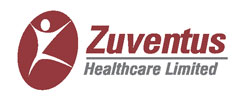In 2016, when the government first introduced EPR for e-waste, few anticipated just how impactful it
would become. By 2021, EPR was extended to plastic waste management, further demonstrating its
effectiveness in addressing waste generation. In 2022, the Ministry of Environment, Forest, and Climate
Change (MoEFCC) implemented EPR obligations for battery and tire manufacturing, importing, and
recycling. During this period, the concept of a circular economy had been gaining momentum for nearly
two decades, and India's commitment to sustainable manufacturing and waste management practices was
becoming increasingly clear. Recycling across various industries revealed the potential to mitigate
global climate change by reducing the extraction of raw materials and lowering fossil fuel consumption
in manufacturing processes.
On May 2, 2023, the MoEF introduced EPR obligations for the oil and lubricant industry, recognizing the
environmental and economic benefits of re-refining used lubricants. Through EPR for Waste Oil, the
government aims to drive the circular economy forward, minimize the environmental impact of oils and
lubricants, enforce the 'polluter pays' principle, and hold producers accountable for the entire
lifecycle of their products.
Objective of EPR for Waste Oil
The advantages of Extended Producer Responsibility (EPR) for waste tyres extend beyond simply obtaining
EPR certification or searching for EPR certificates for rubber and waste tyres. These benefits are
crucial for the entire nation:
- Integrating the environmental costs of recycling
- Developing a traceable waste management system
- Reducing the unscientific disposal of waste oil and lubrication products
- Reducing the burden on municipalities
- Promoting the development of environmentally sound products
The new regulations will apply to all entities involved in the production, import, and recycling of base
oil or lubrication oils. The Central Pollution Control Board (CPCB) will establish an online portal
where entities must register, submit quarterly and annual returns, and generate EPR certificates. EPR
registration is now mandatory for the following oil manufacturing and refining stakeholders:
- Producers
- Collection agents
- Recyclers
- Used oil importers
Highlights of the HWM Amendments Rules, 2023
Through the 2023 draft notification, the following terms have been defined.
| Base Oil |
Oil that is used for the manufacture of finished lubrication oil |
| Collection point and agent |
The facilities and points where the permitted collection agent would gather the waste oil. |
| Environmentally sound management of Used oil |
Ensuring that Waste oil is handled in a way to protect health and the environment from any
adverse effects that may result during the gathering, transportation, and recycling of Waste oil
in accordance with the established guidelines. |
| Extended Producer Responsibility |
Duty of any waste oil or lubrication oil manufacturer or importer to satisfy recycling targets
solely through licenced recyclers to ensure environmentally sound management of old oil in
accordance with the rules of subparagraph (2) of paragraph 3 of the schedule. |
| Re-refining |
Any environmentally sound method of re-refining old oil to create base oil or lubricating oil
that has the facilities detailed in the standard operating procedure (SOP) or standards
established by the Central Pollution Control Board. |
| Recycling |
Any procedure that purges unwanted impurities from old oil to produce base oil or lubricating
oil as the final product. |
| Used Oil |
Any oil as defined under sub-rule (36) of Rule 3 of Hazardous and Other Wastes (Management and
Transboundary Movement) Rules, 2016. |
Who are Producer, Importers and Recyclers?
- Producers: Producers are entities or individuals who:
 Manufacture base oil or lubrication oil domestically under their own brand,
regardless of the sales channel (dealers, retailers, e-retailers, etc.).
Manufacture base oil or lubrication oil domestically under their own brand,
regardless of the sales channel (dealers, retailers, e-retailers, etc.).
 Sell
lubrication oil locally under their brand, using base oil produced by other
manufacturers or suppliers.
Sell
lubrication oil locally under their brand, using base oil produced by other
manufacturers or suppliers.
 Import
base oil or lubrication oil into the country for sale.
Import
base oil or lubrication oil into the country for sale.
- Importers: Importers are entities or individuals who bring base oil or lubrication
oil from outside the country for sale or distribution within the country.
- Recyclers: Recyclers are individuals or organizations involved in the process of
collecting and recycling used oil.
Modalities of the EPR Portal for Waste Oil
The Central Pollution Control Board (CPCB) will soon launch a centralized online system to facilitate the
registration of entities, submission of quarterly data, annual returns, issuance of EPR certificates,
and tracking of oil quantities produced or generated by stakeholders. Entities that fall into multiple
categories must complete separate registrations for each category.
EPR Targets and Implementation for Waste Oil
To achieve EPR targets, producers and waste oil importers will be permitted to acquire EPR certificates
from registered recyclers. These registered recyclers can issue EPR certificates upon completing the
recycling of waste oil at their facilities. The draft notification outlining the EPR targets for
producers is detailed in Schedule X, Rule 3(2).
| S.No. |
Year |
EPR Targets |
| (a) |
2024-25 |
10% of the imported or sold base or lubricating oil in the years 2022–2032. |
| (b) |
2025-26 |
20% of the imported or sold base or lubricating oil in the years 2023–2024. |
| (c) |
2026-27 |
30% of the imported or sold base or lubricating oil in the years 2024–2025. |
| (d) |
2027-28 |
40% of the imported or sold base or lubricating oil in the years 2025–2026. |
| (e) |
2028-29 |
50% of the imported or sold base or lubricating oil in the years 2026–2027. |
| (f) |
For the years 2029–2030 (Y) and later, the EPR of collection and recycling target will be
60% of the base oil/lubrication oil sold or imported in the year. |
|
| (g) |
For units established after 1st April 2024, the EPR obligation will commence after two years
from the year in which the unit is established and will have to follow the target specified
above. |
|
Targets for Used Oil Importers under EPR for Waste Oil:
The EPR obligation for used oil importers in a given year 'Y' will be set at 100% of the used oil
imported during the previous year, 'Y-1'. It is crucial to note that the import of used oil will only be
allowed for re-refining purposes.
Registration Process for EPR for Waste Oil
Registration on the portal will open once the detailed guidelines are released. The general steps to
follow include:
Step 1: Application Submission
The applicant must sign up on the portal under the applicable category. After successful signup,
they will need to upload the required documents and submit the application.
Step 2: Application Review
The CPCB will review the submitted documents and notify the applicant if any issues are identified in
the application. Any queries will be communicated to the applicant via the registered email address.
Step 3: EPR Registration for Waste Oil
If the application is complete or all issues raised by the Board are resolved, the applicant will be
registered, and a registration number will be issued by the CPCB. The registration will be valid for 2
years, and the applicant must renew it in their category every 2 years.
Documents Required for EPR for Waste Oil:
- Plant-wise manufacturing data (in Excel format)
- Company PAN card
- Company GST number
- Company IEC number (for importers only)
- Company CIN number
- Aadhar card of the authorized representative
- Address of the company’s head office within the country
Responsibilities of Producers
The responsibilities of the stakeholders have been identified and elaborated in the new rules. The key
areas have been tabulated below.
| Entity |
Registration on the Portal |
Need to Fulfil EPR Targets |
Filing Returns |
Additional Roles |
| Producers of base oil or lubrication oil |
Yes |
Yes |
Annual |
Creating awareness through media, publications, ads, posters, etc. |
| Used Oil Importer |
Yes |
Yes |
Annual returns and quarterly submission of data |
Creating awareness through media, publications, ads, posters, etc. |
| Collection Agent |
Yes |
Not Applicable |
Annual returns and quarterly submission of data |
Upload data on the collection of used oil from oil generators to the recycler or
producer.
|
| Recyclers |
Yes |
Not Applicable |
Annual returns and quarterly submission of data |
Comply with the Hazardous Waste Management Rules and CPCB’s Guidelines on used oil
recycling. |
| Bulk Generators |
NA |
NA |
NA |
Set up collection points for collection agents to facilitate the collection process.
|
How Can SeaRoot Assist You?
 The expert team at
SeaRoot will guide you through the entire process of obtaining your license.
The expert team at
SeaRoot will guide you through the entire process of obtaining your license.
 We provide continuous
support and regularly monitor your application to ensure a smooth process.
We provide continuous
support and regularly monitor your application to ensure a smooth process.
 Timely delivery of
your license once approved.
Timely delivery of
your license once approved.
 Assistance with all
necessary paperwork.
Assistance with all
necessary paperwork.
 Comprehensive
end-to-end support to meet your compliance needs.
Comprehensive
end-to-end support to meet your compliance needs.
Frequently Asked Questions
1.What is Oil Waste Management?

Oil Waste Management involves the collection, treatment, recycling, and proper disposal of used
or waste oil to prevent environmental damage and promote sustainability.
2.Why is managing oil waste important?

Proper management of oil waste is crucial to prevent pollution, protect ecosystems, and reduce
the reliance on fossil fuels by promoting recycling and re-refining of used oils.
3.What is Extended Producer Responsibility (EPR) in Oil Waste Management?

EPR in Oil Waste Management mandates that producers, importers, and recyclers of oil are
responsible for the entire lifecycle of their products, including proper disposal and recycling
of used oil.
4.Who needs to comply with EPR for Waste Oil?

Producers, importers, recyclers, and collection agents dealing with base oils, lubricants, and
used oil must comply with EPR regulations to ensure environmentally sound disposal and recycling
practices.
5.What are the penalties for non-compliance with EPR regulations for waste oil?

Non-compliance with EPR regulations can lead to fines, legal actions, and loss of operational
licenses as determined by the Central Pollution Control Board (CPCB) and local authorities.
6.How can waste oil be recycled?

Waste oil can be re-refined and purified to produce base oil, which can then be used to
manufacture new lubricants, reducing the need for virgin oil extraction and benefiting the
environment.









